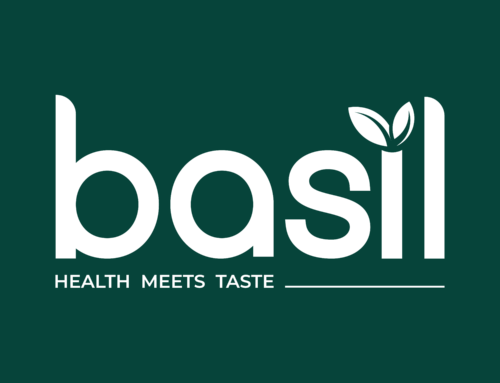In today’s data-driven world, businesses face a new challenge: not the scarcity of information, but an overwhelming abundance of it. With vast amounts of structured and unstructured data at their fingertips, organizations are tasked with deriving actionable insights quickly and efficiently. The ability to sift through this information and find relevant answers can define the success of decision-making processes.
While most GenAI powered conversational assistants available in the market offer a way to scale the insight generation process by allowing users to ask questions and display the relevant answer from the data, we realized that providing contextual information reliably is still a challenge. They often fall short of providing the level of detail, accuracy, or relevance that organizations need. Many of these tools are not equipped to handle specific business contexts or complex industry-specific queries, resulting in generic answers that may lack depth or accuracy. This has driven the need for more customizable, context-aware AI solutions.
And then we designed, Ask NucliOS — a platform designed that address this challenge, helping businesses create AI-powered conversational assistants that provide specific, contextual answers to complex questions — customized for each organization’s unique needs.
Introducing Ask NucliOS: A Customizable AI Assistant Platform
Ask NucliOS is designed to give organizations the flexibility to build powerful bespoke conversational assistants catering to specific use cases. Whether it’s helping pharmaceutical reps prepare for meetings or simplifying navigation through complex data systems, Ask NucliOS allows users to create assistants that are not only versatile but also highly relevant to their needs.
What Makes it Unique?
Ask NucliOS is built around four foundational concepts that allow it to provide highly relevant, context-aware answers for complex, business-specific questions. These concepts — Custom Skillsets, Orchestration of Responses, Custom Context Integration, and an Intuitive Interface — work in tandem to create a flexible and adaptable platform for enterprises.
1. Custom Skillsets: Configuring Assistants for Targeted Business Tasks
Ask NucliOS recognizes that no single skillset fits all business needs. The platform is designed to allow organizations to configure assistants with “custom skillsets” — modular units of functionality that address specific tasks. These skillsets can be adapted for various industries, roles, or workflows, allowing each team or department to build assistants that meet their particular needs. In addition, Ask NucliOS comes pre-configured with certain deeply researched reusable skillsets that we have enabled for our customers.
For example:
Text-to-SQL Generator skillset translates natural language questions into SQL queries, allowing users to quickly retrieve data from complex databases without needing SQL expertise.
Document Querying Pipeline skillset enables users to search across large volumes of documents, retrieving relevant information to answer document-heavy queries. The pipeline also includes pre-processing of complex documents that is essential for querying documents.
PowerPoint Storyboarding helps create presentation-ready insights by pulling data into coherent storylines, useful for business development or strategy teams.

The Reusable Skillset Marketplace within Ask NucliOS allows businesses to select from a variety of pre-built skillsets or develop their own custom versions, ensuring that each assistant is equipped to handle the specific types of queries it’s likely to receive. A command-line interface (CLI) supports power users, like data scientists, to build and deploy these skillsets effectively.
2. Orchestration of Responses: Routing Queries to the Right Skillset
Ask NucliOS uses two orchestration models to make sure that every question finds its way to the most relevant skillset. These orchestration models play a crucial role in managing complex queries by automatically routing each question to the right tools.
Description-Based Orchestrator: This model uses natural language descriptions to match each question with the most relevant skillset. By using a template-driven prompt, the Description-Based Orchestrator can handle a wide range of topics and diverse question types, selecting the correct skillset based on the query’s content.
Function Call Orchestrator: When a question is more complex, this orchestrator engages users by requesting additional parameters before proceeding. This allows Ask NucliOS to address questions that require specific inputs, like detailed data filtering or precise comparisons. For instance, an analyst may ask for sales data filtered by time and region; the Function Call Orchestrator would prompt for these parameters to ensure the correct answer is retrieved.

Both orchestrators support integration with multiple language models, which allows for optimized performance and cost management, as well as flexibility in tailoring chatbot behavior to specific needs. This orchestration capability ensures that users get the right answer faster, with minimal back-and-forth interaction.
3. Custom Context Integration: Embedding Organizational Knowledge
One of the most challenging aspects of building AI assistants is ensuring that responses are relevant to the organization’s unique context. In many cases, generic answers are insufficient; businesses need responses that reflect their internal knowledge, processes, and market realities.

Ask NucliOS addresses this need by allowing users to integrate custom context directly into the platform. This is achieved through a Context Configurator that enables teams to add organizational context, such as industry-specific terminology, user persona, company policies, or proprietary data sources. Users can select from various templates to structure this custom context, ensuring that it is readily available to skillsets and orchestrators during response generation.
For instance: A pharmaceutical company could integrate knowledge about drug names, clinical trials, and regulatory requirements. A retail company might add product line data, KPI definitions, market trends, and customer segmentation details.
By embedding this custom context, organizations can ensure that Ask NucliOS delivers responses that are not only accurate but also aligned with their specific knowledge and operational needs. This context integration makes the assistant feel more like an “insider” who understands the nuances of the business.
4. Intuitive and Customizable Interface: Building Trust and Ease of Use
The interface of Ask NucliOS is designed to be intuitive, transparent, and customizable, which is essential for building trust in AI-driven answers. To be effective, AI assistants need to be not only accurate but also user-friendly, giving users confidence in the results they receive.
Key features that make the interface of Ask NucliOS stand out include:
Citations and Source Information: Every response generated includes citations that let users see where the information came from, providing transparency and reliability.

Context Display: The interface also displays any additional context used in formulating an answer, helping users understand how responses are tailored to their organization’s unique knowledge.

Configurable Validation Layers: To improve accuracy, Ask NucliOS allows organizations to set up validation layers. These can automatically check responses for relevance and accuracy, discarding irrelevant answers if needed.
Automatic Evaluation of Retrieval-Augmented Generation (RAG) Pipelines: For assistants using RAG pipelines, the platform includes automatic evaluation mechanisms to ensure that retrieved content is relevant to the user’s question.
Continuous User Feedback: Ask NucliOS incorporates feedback loops, allowing users to rate or comment on answers, which in turn helps refine future responses. Over time, this feedback mechanism helps the platform “learn” the preferences and standards of each organization.

Real-World Applications of Ask NucliOS
Since its launch in May 2024, Ask NucliOS has been used to create over 200 custom assistants across industries. Some examples of how businesses are leveraging the platform include:
- Sales Support in Pharmaceuticals: Assistants that help pharma reps prepare for meetings by quickly pulling together relevant data and insights.
- Data Insights Assistants: Tools that simplify complex data searches, allowing users to navigate large SQL databases with natural language queries.
- Insights for Market Research: Assistants that help healthcare and consumer goods companies gather and analyze market data, expediting decision-making processes.
- Dashboard Integrations: Assistants that enhance existing business intelligence dashboards, providing more contextual, on-demand answers from underlying data.
While a marketing team may use the platform to gather competitive intelligence, the supply chain team could build an assistant that streamlines logistics management by querying warehouse data or delivery schedules. This flexibility makes it possible for different departments to deploy customized solutions, rather than relying on one-size-fits-all tools.
Shaping the Future of Business Decision-Making
As businesses continue to generate and store more data, the ability to make quick, informed decisions becomes increasingly important. By enabling organizations to create customized, context-aware assistants, Ask NucliOS helps users access the right information at the right time. This can lead to faster decision-making, better use of existing data, and more efficient workflows across the organization.
In upcoming discussions, we’ll dive deep into the core concepts of Ask NucliOS and how specific industries are using Ask NucliOS to tackle their unique challenges, and how the platform is evolving to meet the growing demands of data-driven decision-making.
For now, what’s clear is that businesses are moving beyond off-the-shelf GenAI solutions toward more bespoke, adaptable tools that align with their specific operational contexts. As enterprises increasingly seek solutions that fit their unique workflows, Ask NucliOS provides a glimpse into the future of AI-powered business intelligence.







